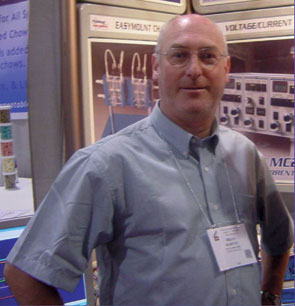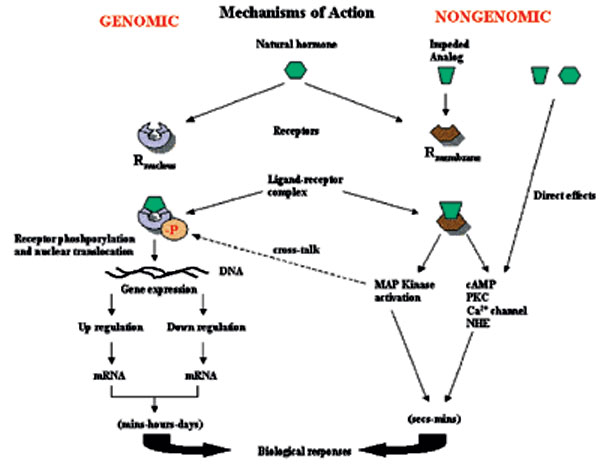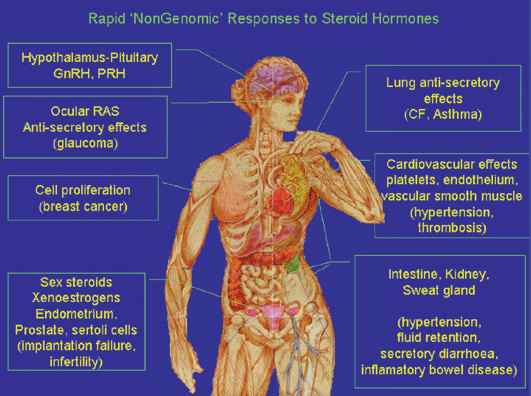 Professor Brian Harvey
In a strategic development to promote
interdisciplinary research between clinical and basic sciences (bench to bedside), RCSI has established a research Chair in Molecular Medicine and new purpose-built research laboratories at its Education and Research Centre at Beaumont Hospital. The Molecular Medicine Laboratories were officially opened in November 2002 under the direction of Professor Brian Harvey, the holder of the first RCSI chair in Molecular Medicine. The founding of the laboratories was aided by grants from the Charitable Infirmary Trust, and the Chair was established by funding from RCSI and Atlantic Philanthropies. Professor Harvey was recruited from University College Cork, where he was Vice-President for Research and Professor of Cell Physiology.
Professor Brian Harvey
In a strategic development to promote
interdisciplinary research between clinical and basic sciences (bench to bedside), RCSI has established a research Chair in Molecular Medicine and new purpose-built research laboratories at its Education and Research Centre at Beaumont Hospital. The Molecular Medicine Laboratories were officially opened in November 2002 under the direction of Professor Brian Harvey, the holder of the first RCSI chair in Molecular Medicine. The founding of the laboratories was aided by grants from the Charitable Infirmary Trust, and the Chair was established by funding from RCSI and Atlantic Philanthropies. Professor Harvey was recruited from University College Cork, where he was Vice-President for Research and Professor of Cell Physiology.
The main theme of research of the molecular medicine labs is the body's rapid response to steroid hormones (RRSH). The integrated and multidisciplinary approach to RRSH in this research programme necessitates the application of a wide range of experimental techniques - such as molecular biology, protein chemistry, biophysics, electrophysiology, proteomics and bioinformatics. The programme harnesses expertise across the Dublin Molecular Medicine Centre (Durkan Institute - TCD, Conway Institute - UCD) and the newly-established Science Foundation Ireland National Centre for Human Proteomics at RCSI, and also builds on collaboration with several of the best laboratories world-wide engaged in RRSH research. The interdisciplinary approach is reflected in the staff profile of 25 researchers from varied backgrounds - such as physiology, pharmacology, biochemistry and medicine - as well as the diverse nationalities present in the research team - from UK, USA, France, Italy, China, Chile, and Ireland. Funding for the research team comes mainly from the Wellcome Trust Programme and Project grants, and the Higher Education Authority Programme for Research in Third Level Institutions.
 Figure 1. Comparative cell signalling of 'genomic' and 'nongenomic' responses to steroid hormones - the figure summarises the major objectives of the programme; receptor identification and characterisation; cellular signal transduction; membrane transporter targets; biological responses; and nongenomic to genomic cross-talk
Rapid responses to steroid hormones (RRSH) is a relatively
new concept. Classically, steroid hormones - such as mineralocorticoids, glucocorticoids, vitamin D, testosterone and estrogen - affect a wide variety of cellular processes, ranging from whole body electrolyte and fluid balance, cell excitability, metabolism, proliferation, and differentiation. These effects occur over hours to days and are 'genomic', involving transcription and translation, new protein synthesis, and are initiated by steroid binding to a nuclear receptor
(Figure 1).
Figure 1. Comparative cell signalling of 'genomic' and 'nongenomic' responses to steroid hormones - the figure summarises the major objectives of the programme; receptor identification and characterisation; cellular signal transduction; membrane transporter targets; biological responses; and nongenomic to genomic cross-talk
Rapid responses to steroid hormones (RRSH) is a relatively
new concept. Classically, steroid hormones - such as mineralocorticoids, glucocorticoids, vitamin D, testosterone and estrogen - affect a wide variety of cellular processes, ranging from whole body electrolyte and fluid balance, cell excitability, metabolism, proliferation, and differentiation. These effects occur over hours to days and are 'genomic', involving transcription and translation, new protein synthesis, and are initiated by steroid binding to a nuclear receptor
(Figure 1).
Over the past decade, evidence has accumulated for a more rapid steroid hormone response (seconds-minutes) that involves novel membrane-associated receptors and nongenomic activation of signal transduction pathways
(Figure 1).
Rapid physiological steroid responses occur in humans - e.g. at the level of electrolyte and fluid homeostasis, cell proliferation, and circulatory or metabolic effects, rendering clinical significance to these rapid responses to steroid hormones
(Figure 2).
 Figure 2. Major organ targets in the human body for rapid effects of steroid hormones
The major objective of the research programmes at the RCSI Molecular Medicine Labs is to uncover the physiological meaning and clinical relevance of rapid responses of steroid hormones in epithelial tissues of the intestine, lung, kidney and eye. Specifically, the research involves the cloning and characterisation of novel receptors and interacting proteins for these hormones, their cellular signal transduction pathways, and their membrane transporter targets (ion channels, pumps and exchangers), and the impact of the rapid responses on whole tissue/organ physiology and on the slower genomic phase. We postulate the end result of the RRSH pathway for steroid hormones in epithelial tissues is to shift the balance from net secretion to net fluid and electrolyte absorption and to stimulate cell proliferation. Thus the research has high relevance to the treatment of disease states of electrolyte and fluid imbalances - such as hypertension, glaucoma, secretory diarrhoea, and in soft tissue metastases such as breast cancer.
Figure 2. Major organ targets in the human body for rapid effects of steroid hormones
The major objective of the research programmes at the RCSI Molecular Medicine Labs is to uncover the physiological meaning and clinical relevance of rapid responses of steroid hormones in epithelial tissues of the intestine, lung, kidney and eye. Specifically, the research involves the cloning and characterisation of novel receptors and interacting proteins for these hormones, their cellular signal transduction pathways, and their membrane transporter targets (ion channels, pumps and exchangers), and the impact of the rapid responses on whole tissue/organ physiology and on the slower genomic phase. We postulate the end result of the RRSH pathway for steroid hormones in epithelial tissues is to shift the balance from net secretion to net fluid and electrolyte absorption and to stimulate cell proliferation. Thus the research has high relevance to the treatment of disease states of electrolyte and fluid imbalances - such as hypertension, glaucoma, secretory diarrhoea, and in soft tissue metastases such as breast cancer.
Contact: Professor Brian J. Harvey, Chair of Molecular Medicine,
Director, Charitable Infirmary Trust Molecular Medicine Laboratories, Royal College of Surgeons in Ireland,
RCSI Education and Research Centre, Smurfit Building,
Beaumont Hospital, P. O. Box 9063, Dublin 9;
Tel: +353 1 8093821; Fax: +353 1 8093778;
E-mail:
[email protected]
; Web:
www.rcsi.ie
|



